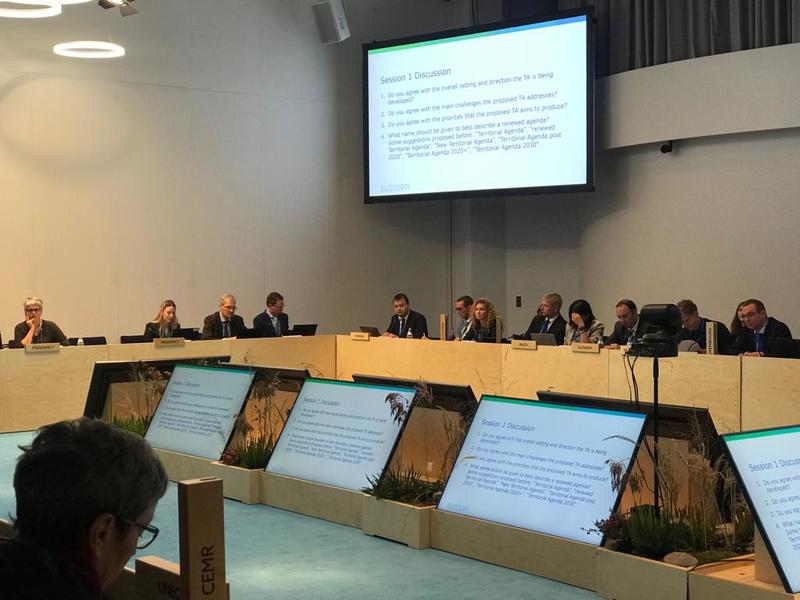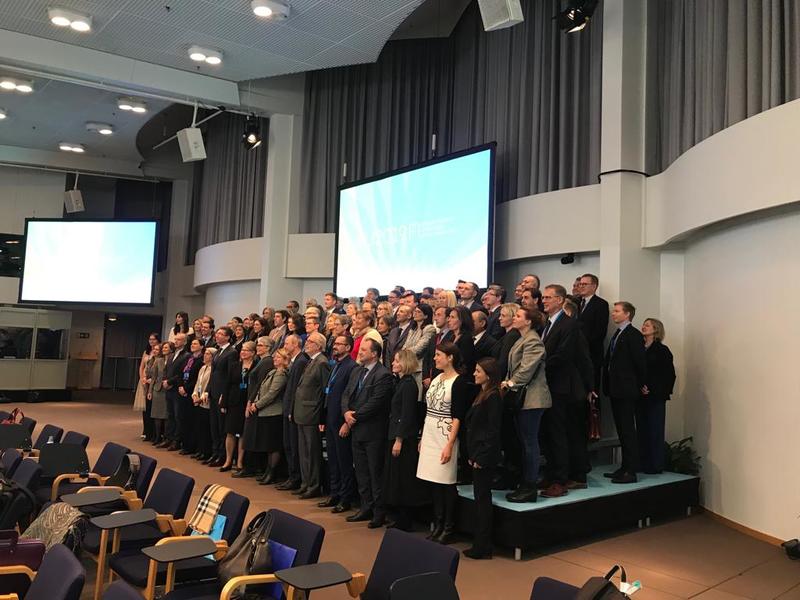Reducing regional disparities will be among the top priorities on Europe’s 2020+ agenda
Reducing regional disparities will be among the top priorities on Europe’s 2020+ agenda
By Ministry of Regional Development and Public Works
Reducing regional, economic and territorial imbalances over the next ten years. This is one of the main goals set out in the fundamental strategic document for the implementation of the regional policy in the EU - Territorial Agenda 2030. The document was discussed at a forum of the Directors-General responsible for cohesion policy, territorial cohesion and urban affairs in Helsinki, Finland, during the Finnish Presidency of the Council of Europe.
Bulgaria was represented by Deputy Minister of Regional Development and Public Works - Denitsa Nikolova.
The Territorial Agenda 2030 sets out six main priorities, targeted at the specific territories to which the countries’ measures to address their challenges in a comprehensive way should be applied. The priorities set out the main directions for focusing on the functional areas, the integrated projects and the interaction of the stakeholders in partnerships for achieving the goals. For example, one direction is aimed at implementing measures beyond the administrative boundaries of settlements, thus focusing on the specific challenges and needs of functional areas with similar geographical characteristics and resources, such as mountain, sea, Danube, area with more underdeveloped territories, etc.
“An important condition will be to take into account the differences between the territories, because a solution valid for all and a conventional approach could not contribute to reducing regional imbalances,” said Deputy Minister Denitsa Nikolova.
She added that local and regional needs should be decisive for a specific territory.
“The implementation of the Agenda is key to the EU cohesion policy, so each Member State, institution and organisation is expected to have a role to play in implementing it. The countries are expected to be the main drivers in the implementation of targeted measures through future programmes funded by European funds,” said Deputy Minister Nikolova.
Its implementation is planned to be carried out through the available Cohesion Policy funds at local, regional, national and supranational levels. In addition, support is provided from international financial institutions, such as the European Investment Bank, the European Bank for Reconstruction and Development and others.
The forum also recognised the need to start the implementation of the Agenda through pilot measures to include countries of interest.
The focus and the draft of the Territorial Agenda under discussion is expected to be adopted at a ministerial meeting in 2020 during Germany’s rotating EU Council presidency.
“The priorities in the document correspond to the vision of the Ministry of Regional Development and Public Works in the ongoing reform of the regional policy and planning. In structuring the new programming period after 2020, the main focus is on identifying and implementing territorially oriented multisectoral measures for comprehensive overcoming of specific challenges in the planning regions,” said Denitsa Nikolova. She added that with the new approach in regional policy, our country creates preconditions for the formation of partnerships at supra-municipal and regional level and the inclusion of regional development councils as a supporting body in decision-making for investments under European funds, as well as prerequisites for flexibility in determining the types of investments and types of measures for each region.
“Bulgaria supports the possibility of participating in the pilot measures, where the main and leading topics in which we state a position for participation are the development of functional areas, as well as investments focused on the main thematic goal of the EU development - ‘Bringing Europe close to people’,” the Deputy Regional Minister also said.






